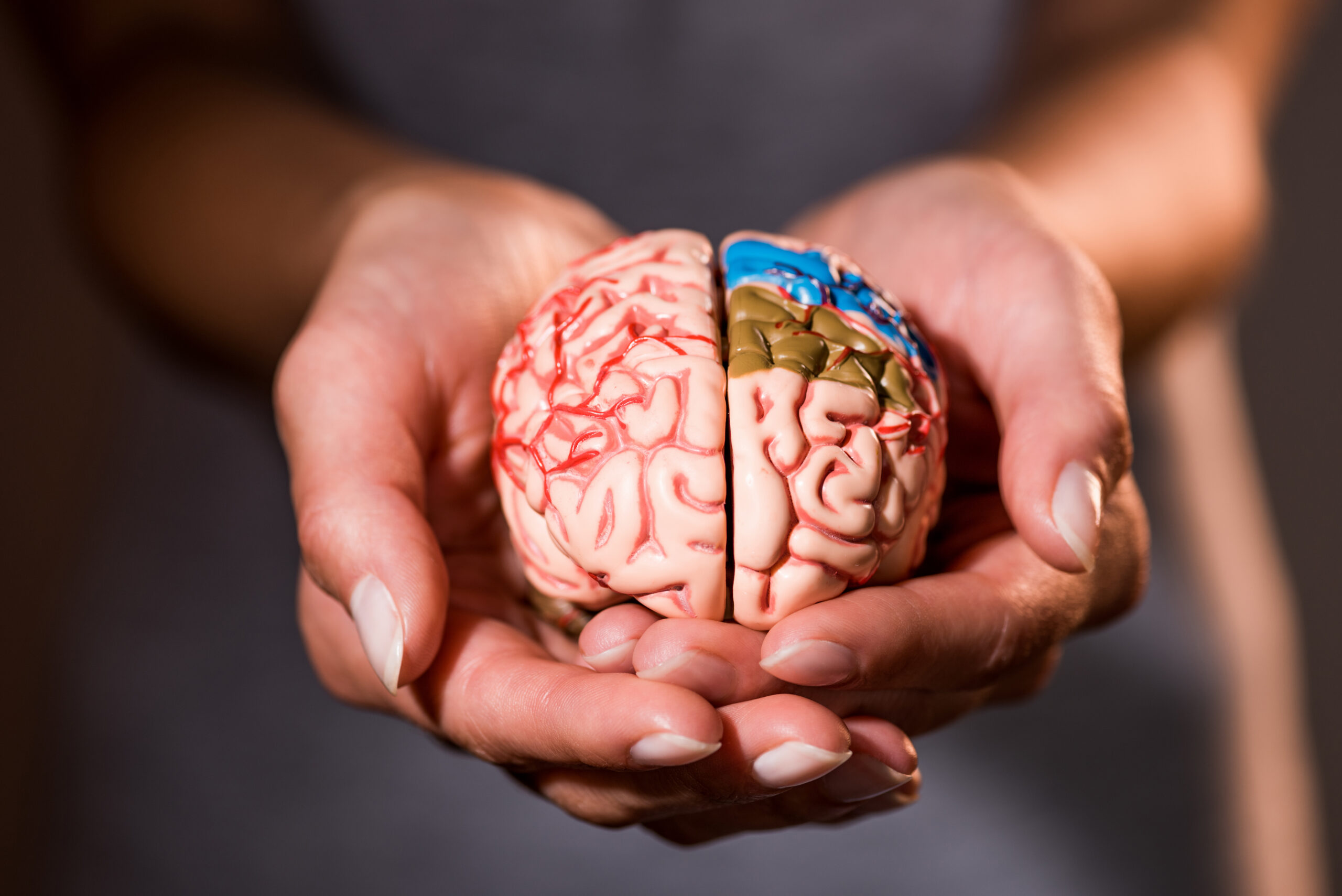G l y m p h a t i c S y s t e m

The glymphatic system is a recently discovered network in the brain that plays a crucial role in clearing away waste products and maintaining neurological health. This intricate system operates primarily during sleep, helping to remove toxins and metabolic waste from the brain. Understanding the glymphatic system and how to support its function can significantly impact your overall brain health and cognitive function.

Understanding
T h e G l y m p h a t i c S y s t e m
What is the Glymphatic System?
The glymphatic system is a network of channels in the brain that facilitates the removal of waste products and toxins. It was named for its dependence on glial cells and its similarity to the lymphatic system. The glymphatic system uses cerebrospinal fluid (CSF) to flush out waste from the brain’s interstitial spaces, ultimately draining into the body’s venous system.
This guide will cover the science behind the glymphatic system, its importance, ways to enhance its function, and lifestyle factors that support optimal brain detoxification.
H o w t h e G l y m p h a t i c S y s t e m W o r k s
- Cerebrospinal Fluid Influx: CSF flows into the brain along para-arterial spaces.
- Interstitial Fluid Exchange: CSF mixes with interstitial fluid (ISF), promoting the removal of waste products.
- Waste Clearance: Waste-laden fluid is directed towards para-venous spaces.
- Drainage: The waste-containing fluid drains into the lymphatic vessels and ultimately exits the brain via the venous system.
K e y C o m p o n e n t s
- Glial Cells: Support the structure and function of the glymphatic system.
- Aquaporin-4 (AQP4): A water channel protein that facilitates the movement of CSF through the brain.
- Cerebrospinal Fluid (CSF): A clear fluid that circulates through the brain and spinal cord, helping to remove waste.
Importance of the
G l y m p h a t i c S y s t e m
Waste Removal
- Metabolic Waste: Byproducts of normal cellular metabolism.
- Amyloid Beta: Proteins associated with Alzheimer’s disease.
- Tau Proteins: Associated with neurodegenerative disorders.
- Toxins: Harmful substances that may accumulate in the brain.
Brain Health
- Reducing Inflammation: Removing pro-inflammatory waste products.
- Enhancing Cognitive Function: Preventing the buildup of harmful proteins and toxins.
- Supporting Sleep Quality: Promoting restorative sleep, essential for brain detoxification.
Ways to
E n h a n c e G l y m p h a t i c F u n c t i o n
Priotize Sleep
The glymphatic system is most active during deep sleep. Ensuring you get quality sleep is crucial for optimal brain detoxification.
- Consistent Schedule: Maintain a regular sleep-wake cycle.
- Sleep Environment: Create a dark, cool, and quiet sleeping environment.
- Sleep Position: Sleeping on your side may enhance glymphatic clearance compared to sleeping on your back or stomach.

Manage Stress
Chronic stress can impair sleep quality and glymphatic function. Incorporating stress management techniques can support brain health.
- Meditation: Practice mindfulness or guided meditation to reduce stress.
- Deep Breathing: Engage in deep breathing exercises to promote relaxation.
- Hobbies: Participate in activities that bring joy and relaxation.
Healthy Diet
A nutritious diet supports overall brain health and glymphatic function. Focus on anti-inflammatory and brain-boosting foods.
- Omega-3 Fatty Acids: Found in fish, flaxseeds, and walnuts.
- Antioxidant-Rich Foods: Such as berries, green leafy vegetables, and nuts.
- Whole Grains: Including oats, brown rice, and quinoa.
- Lean Proteins: Like chicken, fish, and legumes.
Regular Physical Activity
Exercise promotes overall circulation, including the movement of cerebrospinal fluid, which can enhance glymphatic function.
- Aerobic Exercise: Such as walking, running, or cycling.
- Strength Training: To maintain overall body health.
- Yoga: To promote relaxation and blood flow.
Stay Hydrated
Adequate hydration supports the flow of cerebrospinal fluid and overall glymphatic function.
- Daily Intake: Aim to drink at least 8-10 glasses of water per day.
- Hydrating Foods: Include fruits and vegetables with high water content, such as cucumbers, watermelon, and oranges.

Lifestyle factors to
S u p p o r t G l y m p h a t i c H e a l t h
Sleep Hygiene
Adopting good sleep hygiene practices can enhance sleep quality and glymphatic function.
Sleep Hygiene Practices
- Wind Down Routine: Establish a relaxing pre-sleep routine.
- Limit Screen Time: Avoid screens at least an hour before bed.
- Comfortable Bedding: Invest in a comfortable mattress and pillows.
D e t o x i f y i n g P r a c t i c e s
Incorporating detoxifying practices can support overall health and glymphatic function.
- Saunas: Promote sweating and detoxification.
- Dry Brushing: Stimulates circulation and supports skin health.
- Hydrotherapy: Alternating hot and cold showers to improve blood flow.
S u p p l e m e n t s
Certain supplements can support brain health and glymphatic function.
- Magnesium: Supports relaxation and sleep quality.
- Omega-3 Fatty Acids: Promote brain health and reduce inflammation.
- Melatonin: May help regulate sleep-wake cycles.
A v o i d E n v i r o n m e n t a l T o x i n s
Minimizing exposure to environmental toxins can support overall health and glymphatic function.
- Air Quality: Use air purifiers and avoid pollutants.
- Non-Toxic Products: Choose natural cleaning and personal care products.
- Filtered Water: Drink filtered water to reduce exposure to contaminants.
P r e - C l e a n s i n g T i m e l i n e
week 1
(Days 1-7)
Initial Preparation
- Hydration: Start increasing your water intake.
- Diet: Transition to a diet rich in omega-3s and antioxidants.
- Exercise: Incorporate daily physical activities like walking or yoga.
- Sleep Hygiene: Begin establishing a consistent sleep routine.
- Stress Management: Introduce stress-relief techniques such as meditation and deep breathing.
week 2
(Days 8-14)
Enhanced Support
- Supplements: Introduce supportive supplements gradually, such as magnesium and omega-3s.
- Saunas/Steam Baths: Schedule sessions twice a week to enhance detoxification.
- Hydrotherapy: Incorporate alternating hot and cold showers into your routine.
- Sleep Position: Practice sleeping on your side to support glymphatic function.
week 3
(Days 15-21)
Intensifying Efforts
- Increased Exercise: Increase the intensity and duration of workouts.
- Hydrating Foods: Consume more hydrating fruits and vegetables.
- Probiotics: Incorporate probiotic-rich foods into your diet to support gut health, which can indirectly benefit glymphatic function.
- Detoxifying Practices: Continue with saunas and hydrotherapy for enhanced detoxification.
week 4
(Days 22-30)
Final Steps
- Consistency: Maintain all practices consistently.
- Assessment: Evaluate how your body feels and make adjustments if necessary.
- Preparation for Cleanse: Ensure you are fully ready to begin your detox or parasite cleanse by optimizing sleep, hydration, diet, and stress management.
The glymphatic system is a vital component of brain health, responsible for clearing away waste products and toxins. By understanding how this system works and adopting lifestyle practices that support its function, you can enhance brain detoxification and overall cognitive health. Prioritizing sleep, staying hydrated, engaging in regular physical activity, managing stress, and maintaining a healthy diet are key strategies to optimize glymphatic function.
